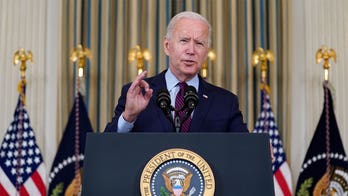The opioid crisis, fueled by illicit fentanyl, continues to devastate American lives. To address this epidemic, the Treasury Department has implemented a comprehensive strategy targeting drug traffickers and their financial infrastructure. The Counter-Fentanyl Strike Force and sanctions against cartel kingpins are complemented by collaboration with the private sector and sharing of illicit financial flow information.
Across the United States, the opioid crisis continues to spiral out of control, with fentanyl emerging as a major culprit. In 2023, over 100,000 Americans lost their lives to drug overdoses, with nearly three-quarters of these deaths involving synthetic opioids like fentanyl. The consequences of this epidemic are staggering and unimaginable.

Combating the Fentanyl Crisis: Treasury's Multifaceted Approach
Recognizing the urgent need to address this crisis, President Joe Biden and Treasury Secretary Janet Yellen have pledged their commitment to combating the opioid epidemic and saving American lives. While the number of overdose deaths from synthetic opioids declined slightly in 2023, the toll remains unacceptably high.
Drug trafficking organizations operate like legitimate businesses, relying heavily on banking systems and access to the U.S. dollar. By targeting the financial infrastructure that these cartels rely on, the Treasury Department holds a unique ability to disrupt their operations.

Combating the Fentanyl Crisis: Treasury's Multifaceted Approach
Under President Biden's direction, the Treasury has implemented a multifaceted approach to fight this epidemic, leveraging law enforcement, sanctions, and financial intelligence capabilities through the Counter-Fentanyl Strike Force. This task force coordinates domestic and international actions to target drug traffickers fueling the crisis through the U.S. financial system.
Treasury deploys sanctions, one of its most potent economic tools, to target cartel kingpins and their support networks who exploit the financial system to traffic narcotics. Over the past two years, Treasury has sanctioned over 250 individuals and entities linked to drug trafficking activities, including those associated with the notorious Mexican drug cartels.

Combating the Fentanyl Crisis: Treasury's Multifaceted Approach
The department has also taken steps to strengthen its engagement with the private sector. Drug trafficking organizations often utilize anonymous corporate structures, known as shell companies, to launder and conceal their illicit gains. In response, Treasury is implementing bipartisan legislation requiring many companies to disclose ownership and control information, empowering authorities to identify and remove dirty money from the financial system.
Treasury actively collaborates with financial institutions to track illicit fentanyl-related financial flows and prosecute individuals abusing the system. To enhance their role, Treasury has established public-private information-sharing exchanges, facilitating communication between law enforcement and banks.
On Thursday, Treasury issued an advisory providing key guidance to financial institutions in identifying suspicious transactions related to the procurement of precursor chemicals and manufacturing equipment used for illicit fentanyl production. This guidance strengthens their capabilities as partners in protecting American lives.
While taking action within its jurisdiction, Treasury also collaborates with foreign partners to disrupt the supply of synthetic opioids and their precursors from abroad. Close coordination with Mexican counterparts and financial institutions has been a cornerstone of this effort.
Treasury is also engaging with China, a primary source of precursor chemicals used in illicit fentanyl manufacturing, to address the problem at its source. Building on President Biden's agreement with President Xi to resume counternarcotics cooperation, Treasury Secretary Yellen directly raised concerns with Chinese officials in April. As a result, China has taken steps to increase cooperation in fighting money laundering and crack down on narcotics trafficking.
Despite the progress made, Treasury acknowledges the need for sustained action. The Biden administration has expanded access to treatment and strengthened law enforcement initiatives at the border, resulting in record fentanyl seizures in the past two years. The President's Budget proposes additional funding to bolster these efforts, including deploying advanced detection technologies and supporting investigations.
Treasury remains steadfast in its commitment to taking all possible measures to save American lives and protect the U.S. financial system and its national security from the scourge of the opioid epidemic.










